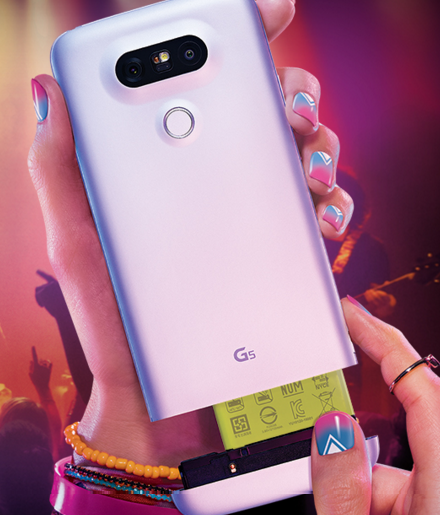LG G5 Beats Samsung Galaxy S7 In Preliminary AnTuTu Benchmark Test

LG and Samsung took the wraps off the G5 and Galaxy S7/S7 Edge, respectively, on Feb. 21. Following this, the new devices have made a visit to a slew of benchmark testing sites, showcasing the power of the flagships.
Under the hood, the LG G5 comes powered by Qualcomm’s Snapdragon 820 chipset. The Samsung Galaxy S7, on the other hand, is powered by both Snapdragon 820 and Exynos 8890, which is region-specific. The U.S. variant of this device will come housed with the Qualcomm chipset, while the international variants will utilize Samsung’s own Exynos SoC.
Phone Arena noted that the Galaxy S7 shown in the MWC 2016 event was the Exynos 8890-powered variant. As it turns out, the Galaxy S7 with Exynos 8890 on board has reportedly been beaten fair and square by the LG G5.
Technically, the South Koran tech giant has built the Exynos 8890 chips with the efficient 14nm manufacturing process. This chip utilized the home-grown 64-bit Kryo CPU. This chipset works in tandem with an octa core processor with four high-performance cores running at up to 2.3 GHz and another four battery-savvy cores clocked at up to 1.5 GHz.
Here is a listing from AnTuTu benchmark test, picked up by Phone Arena, showing the scores of all the relevant devices:
- LG G5 133054
- Samsung Galaxy S7 116668
- Samsung Galaxy Note 5 67207
- Google Nexus 6P 60007
- Apple iPhone 6s 59075
- Samsung Galaxy S6 58382
- HTC One M9 56896
- Google Nexus 5X 53178
- LG G4 50330
- BlackBerry Priv 48212
- Microsoft Lumia 950 25445
Going by the results, the LG G5 has clearly outscored the Galaxy S7. The icing on the cake is that — there is a huge difference between the performance scores of LG G4 and LG G5. It shows LG has truly improved the flagship successor with a brand new modular design combined with cutting-edge configurations.
Readers should, however, note that the Qualcomm Snapdragon 820 variant of the Galaxy S7 has not made its way to benchmark tests yet.
© Copyright IBTimes 2024. All rights reserved.




















